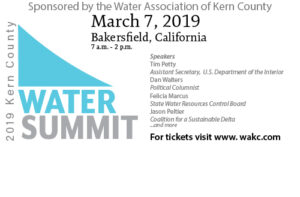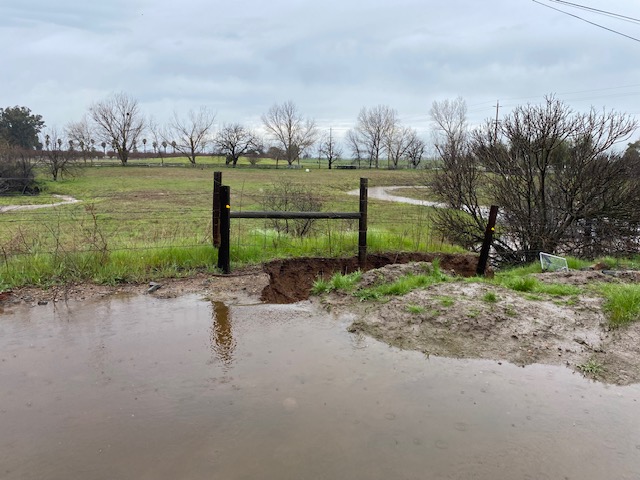By Don A. Wright
The North Kings GSA Advisory Committee met on Friday, February 9, 2024 at the Clovis Police Department’s public conference room or whatever they call it. This is one of my favorite meetings. It’s only a 10-15 minute drive from my home. It’s on Friday afternoons so it doesn’t usually bog down in circular nonsense. And I live in the North Kings GSA so they cut me a little slack to speak up if I have something semi-pertinent to say. There are some new faces, at least new to me. There have been changes at Fresno Metropolitan Flood Control District.
they cut me a little slack to speak up if I have something semi-pertinent to say. There are some new faces, at least new to me. There have been changes at Fresno Metropolitan Flood Control District.
The Meeting
Vice Chair Adam Claes was running things as Chairman Scott Redelf wasn’t able to attend. The meeting was called at the scheduled 1:30pm start time with roll call and a quorum was established. Executive Director Kassy Chauhan read the Brown Act boilerplate regarding the meeting being both in person and online. There was public comment that doesn’t warrant repetition and the minutes were approved unanimously. Lisa Cohen gave the financial report saying things were in order. The committee approved.
Chauhan gave a budget update saying so far the GSA has been operating below budgeted amounts but expenditures will increase this spring as project implementation increases.
Provost & Pritchard’s Ron Samuelian said the timeline to get data-gap studies updates for the Kings Subbasin coordination is moving fast. He also said there has been progress working with the Madera Subbasin. Although the Kings Subbasin isn’t in danger of probation there were items the state needs addressed. Samuelian said there is work being done to update the Groundwater Sustainability Plan.
working with the Madera Subbasin. Although the Kings Subbasin isn’t in danger of probation there were items the state needs addressed. Samuelian said there is work being done to update the Groundwater Sustainability Plan.
The fall 2023 groundwater levels are coming in and that will be put together. Samuelian isn’t sure if the subbasin improved by a little more or a little less than one million acre feet. He said it is a good thing the Kings Subbasin GSP was approved. If you live somewhere else not in an approved subbasin you have headaches not experienced here.
Admin Items
Chauhan said she’s been working on the groundwater level monitoring network. She said getting the proper wells on the list and getting identified well improvements completed by the March groundwater survey is a priority. There is about $25,000 in the budget and the request to fix five wells shouldn’t cost more than $6,500. All of the recommended improvements were considered reasonable.
Chauhan said there is also the need for increased remote monitoring. This is also within the budget. Many of the locations are fairly remote and need some kind of security to prevent vandalism or theft of components. These improvements are considered short term.
There is a need to develop a dedicated monitoring system owned by the GSA. Chauhan estimated 48 monitoring wells are needed over a five-year period. This long-term improvement would eliminate ag irrigation wells, which are not the most accurate and depending on the time of year unavailable due to actual irrigation pumping. The first 10 wells are estimated to cost $20,000. The committee agreed this is within her authority to make these budget expenses and approved recommending the actions to the board. So that was nice.
What is a minimum well depth construction policy? Claes asked Chauhan to walk the committee through the purpose. She explained establishing a minimum depth that will take into account the NKGSA glide path to sustainability. Having shallow wells allowed will just set up domestic problems and increase the amount of mitigation obligation needed. She said this has been vetted by legal and recommended this go to the board.
Claes said as Assistant General Manager of Fresno Irrigation District he’s been involved in writing the policy and belies in it. Josh Rogers from Biola Community Services District asked how policy will be made known. Chauhan said mostly the Fresno County Public Work’s permitting process will alert drillers. The committee agreed and this will be forwarded to the NKGSA board. It’s important to remember GSAs can’t deny a well permit. But it can set well standards that must be met to receive future assistance from the NKGSA. A driller can go shallow but the landowner won’t be eligible for services in the future.
Next Chauhan said the additional million acre feet of groundwater has depressed the number of well permits since the first of the year to seven. Last year at this time there were 53-permits.
The Well Registration Tool is ready to put up on the NKGSA website by next week. There will be an educational outreach to Fresno County white area landowners. This is exciting and an opportunity to reach a vulnerable segment of the population. Chauhan expects a full launch of the program by April and she expects outreach so massive folks will be tired of hearing about it. There has been success with this type of program in other GSAs and subbasins.
Workgroups
Claes gave the Technical Working Group report. The group met last week and walked through what the a well registration program will look like at the subbasin level. The domestic well mitigation and an improved monitoring well network were talked through. Water quality needs a network upgrade as the reporting must be more frequent.
The Kings Water Alliance Stakeholder Advisory Committee update was given by Cohen who said meetings are now scheduled quarterly. They have been doing outreach with postcards, back to school events and reached 503 bottled water households. Chauhan said the outreach component under SGMA is becoming very important as criticism is continuing to grow. She didn’t say who was griping but I have a guess it is certain usual NGO suspects.
outreach component under SGMA is becoming very important as criticism is continuing to grow. She didn’t say who was griping but I have a guess it is certain usual NGO suspects.
Member Agency Report
Next Claes gave a water supply update saying Millerton Lake Storage is at 297,000a/f and rising. Friant Class One allocations will be released by the end of February with 35-55 percent allocations. There has been a heavy, cold storm that just passed through so those allocations are most likely extremely conservative. Pine Flat is at 663,000 a/f and inflows are increasing. The Airborne Snow Observatory flight has 294,000 a/f of snow water on the Kings River watershed and 348,000a /f on the San Joaquin River. These estimates may be two or three times higher since the most recent storms haven’t been figured in.
Executive Report
Chauhan reported on the past year saying she gives years in review to remember milestones achieved. The GSP was approved, that’s a big deal. This past year was a huge water year that helps limit pumping. The well registration tool is ready and the GSA is moving away from the Fresno Irrigation District policy by developing its own.
Chauhan said much of what took place this past year was routine which is good. Outreach is going well and the project list is being updated annually. There was a big project in Biola completed as were water supply agreements with Malaga. Going forward priorities for 2024 have been put in place for implementation. January 2025 is the first of four GSP revision under SGMA. There will be more meeting with member agencies this year to help track progress. She sees greater outreach to the White Areas as a priority. AB 828 is on the radar. This proposed piece of legislation will reduce the GSAs ability to engage with DACs and wetlands through special exemptions. This harms the goal of local control. And finally, the water allocation framework still needs to be finalized.
Chauhan also said there has been good engagement from Fresno State University. This has been a long dance as the university’s status eligibility under SGMA to join a GSA was under question when SGMA was first implemented in 2020.
Fresno Metropolitan Flood Control, Fresno ID, the City of Clovis and the Army Corps of Engineers have taken steps to use the Big Dry Creek Reservoir for water supply and not solely flood control. There is also some EQIP grant funding still available for those within FID.
With that the meeting adjourned at 2:54pm. The next meeting will be March 8th.
DISCLAIMER OF RESPONSIBILITY; Waterwrights.net strives to provide its clients with the most complete, up-to-date, and accurate information available. Nevertheless, Waterwrights.net does not serve as a guarantor of the accuracy or completeness of the information provided, and specifically disclaims any and all responsibility for information that is not accurate, up-to-date, or complete. Waterwrights.net’s clients therefore rely on the accuracy, completeness and timeliness of information from DAW entirely at their own risk. The opinions expressed in this report are those of the author and do not represent any advertisers or third parties.
ALL RIGHTS RESERVED. Copyright 2024 by WaterWrights.net/DAW
SGMA The Sustainable Groundwater Management Act of 2014 calls for the formation of Groundwater Sustainability Areas within Basins and Sub-basins to develop Groundwater Sustainability Plans.
MEMBERS: Bakman Water Company, Cities of Kerman, Fresno and Clovis, Fresno County, Fresno Metropolitan Flood Control District, Garfield Water District and Fresno ID
Executive Director – Kassy Chauhan
DWR # Listing: Basin San Joaquin, Sub Basin Kings 5-022.08






























